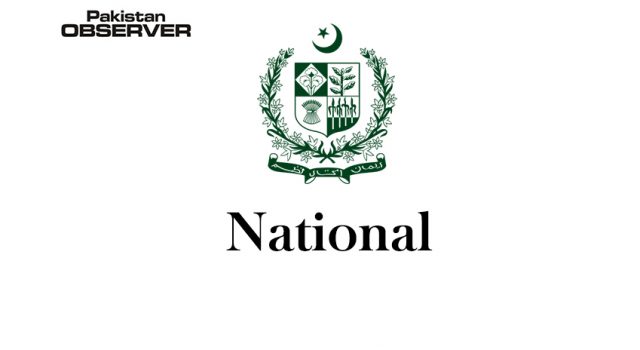Youm-e-Takbeer reflects Pakistan’s resilience
Throughout the length and breadth of Pakistan and wherever Pakistanis are settled inside or outside the country, May 28 is observed every year as ‘Youme Takbeer’ since the year 1998 when Pakistan conducted five nuclear tests at Ras Koh Hills in the Chagai District of Balochistan.
It was Pakistan’s first public test of nuclear weapons which was carried out in response to India’s hegemonic designs which became more pronounced after the New Delhi government conducted three underground nuclear tests in the Pokhran Range in the desert of Rajasthan near the Indo-Pakistan border on May 11, 1998 followed by two additional explosions on May 13.
Many an observer of international affairs are of the considered opinion that Pakistan’s decision to go for nuclear tests on May 28, 1998 reaffirmed the image of Pakistani nation as a nation of strong-willed people who can resist pressures and defy dictation from powerful, imperialist forces, fearlessly and without getting ensnared in any ‘billion-dollar’ trap or bait. For the entire Muslim Ummah, it was, by all standards, ‘Youme Takbeer’ as it reinforced the faith of Pakistani nation in Allah Almighty’s Omnipotence since the Arabic word ‘Takbeer’ reflects the Muslim belief that Allah is the Greatest of all.
As for the opinion proffered by international affairs’ observers, it should not be evaluated only in terms of empowerment of a country through nuclearization as is believed by some circles which consider military (or nuclear) strength as a tool of influence or global clout. It should also be examined in the backdrop of India’s military adventures and hegemonic designs by way of which it has always tried to treat its neighbours, including Pakistan, as its satellites, though this ‘grand dream’ of self-aggrandizement or that of ‘Akhand Bharat’ (Greater India) has never come to fruition, at least in juxtaposition with a resilient, vibrant Pakistan and a stronger and resolute China.
Examples of India’s military adventures are well known to the world community as has been evidenced in the form of three big India-Pakistan wars and some other skirmishes on one pretext of the other, let alone thousands of blatant ceasefire violations committed brazenly by Indian troops on the working boundary, resulting in the killing of several innocent Pakistanis inhabiting the border region.
‘Youme Takbeer’ should be observed as a day of gratitude towards, all the decision-makers and those at the helm of affairs in Pakistan whose unanimous support, on a continuous basis, for Pakistan’s nuclear programme, helped the country attain the optimum level of nuclear capability that has been acknowledged by the world as a peaceful programme as well as a system of deterrence, with foolproof safeguards, against external aggression which has been experienced by Pakistan again and again at the hands of India. And then, after India’s final testing of nuclear device in early May, 1998, Pakistan was left with no choice other than going for building up an effective system of deterrence.
However, it was not an easy decision to make as the global powers, especially those of the West were not at all willing to allow Pakistan to go for conducting the nuclear test, even after India’s tests of May 11 and 13. Threats were hurled against Pakistan from different directions which means from the powers that ruled the roost in global affairs. Not only that, sums of billions of dollars were also offered to ‘gratify’ Pakistan but the leadership of those times, stood ground and defied all this intimidation and luring offers.
“No way”, was, in fact, the response of Pakistani government that was, at that time, headed by Pakistan Muslim League-Nawaz (PML-N) leader, Mian Nawaz Sharif, who was then the Prime Minister of Pakistan. No doubt, other stakeholders including a prominent media personality provided psychological, moral and intellectual support to Mian Nawaz Sharif to go ahead with this difficult decision, nevertheless the credit mainly goes to former Prime Minister, Mian Nawaz Sharif and his party, PML-N, for taking bold, timely decisions and thus empowering Pakistan against the onslaughts of its proven aggressor in the neighbourhood.
The credit also goes to former Prime Minister and the then Chairman of Pakistan People’s Party (PPP), Zulfikar Ali Bhutto, who can be rightly described as the pioneer of nuclear weapons system in Pakistan. He too defied many restrictions and controls and handled the whole matter persistently and intelligently so as to thwart the nefarious designs of the opposing and resisting powers. It was during his tenure that Pakistan was fortunate enough to engage with Mohsin e Pakistan, Dr Abdul Qadeer Khan, as well as other renowned atomic scientists who were properly supported and strengthened by Zulfikar Ali Bhutto to put the nuclear project on a fast, sure-fire track.










